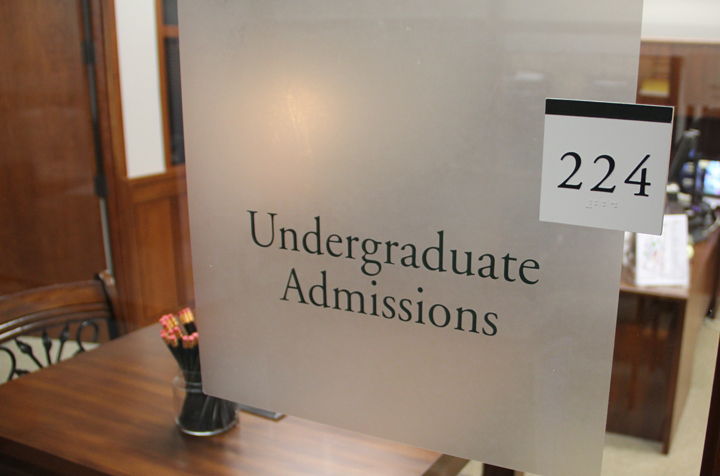As we have noted several times in this blog, students should focus on pursuing their interests, rather than choose their extracurriculars and essay topics on the basis of what colleges want to see. The reason for that is that there is no magic formula that will guarantee a student admission to all colleges, and at the most competitive colleges admissions decisions can indeed be difficult to predict.
But the most important aspect in college decisions—and the one that should govern students and does govern college admissions offices—is fit. Because fit depends on both sides, students are best served by being themselves and pursuing what they are most passionate about. Thinking about college decisions in this way can help take some of the mystery (and sometimes, sting) out of the college admission decision process.
Student fit
In order to determine how well a student fits a college, admissions officers take a number of factors into account.
- Grades and rigor of courses
- Test scores
- Extracurricular activities
- Essays
- Recommendations
- Special abilities (athletic, musical, artistic, status)
- Legacy status
- Demonstrated interest
Non-student-related factors in admissions decisions
In addition to the fit of the student, colleges also decide on the basis of what the campus needs in any given year, what the administration’s goals are, and sometimes what faculty seek, too.
Changing needs and priorities
Students will not know how many spots are available and what a college’s priorities are in any given year. Colleges also generally only give a general idea of how they factor different components of the application to reach the decisions. No doubt, this can be frustrating to parents and students alike.
Thoughtful decisions
But just because admissions decisions are difficult to predict sometimes does not mean that the decisions are arbitrary. Human beings—some of whom are recent graduates of the school where they now work as admissions officers, some of whom have worked for decades at the school where they preside over admissions decisions, all of whom want to pick a class of students who bring something to the campus community—spend a lot of time reading the applications carefully and reflecting on how well a student seems to meet academic standards, the campus culture of the college and the college’s priorities that year.
It is worth recalling, too, that just as these factors can go against students, they can also go in favor of students as well.
Bottom Line:
Admissions decisions do not necessarily mean that a student could not do the work if s/he went to the college, that a rejected student is somehow unworthy of going to a college, or represent a decision on the student’s ability to succeed in life or at college. Nor do they represent random decisions. What these decisions do reflect are questions of the number of spaces available to offer students admission each year, what the college prioritizes in any given year and fit. Both students and colleges try to determine their best fit. Students can maximize their chances by researching and applying to schools that fit them well; as long as they decide to attend a school that will allow them to grow intellectually and personally, students will have a great college experience.




